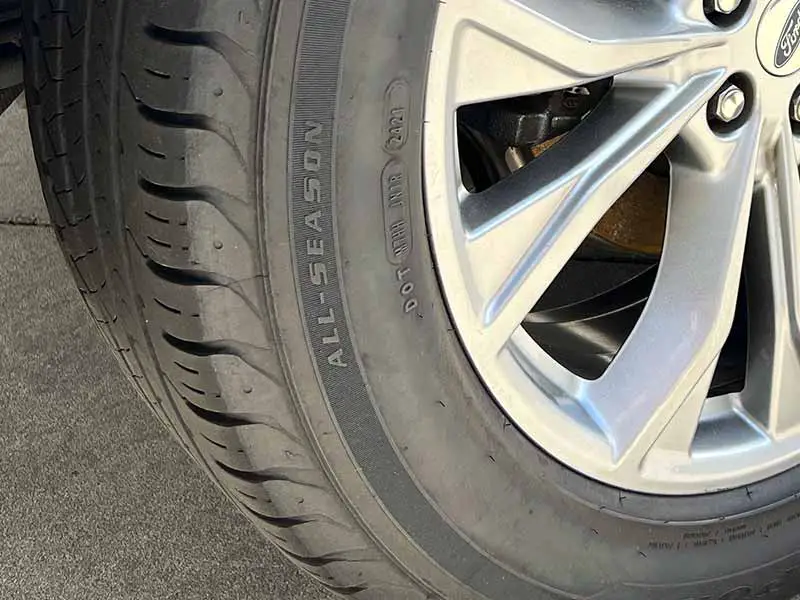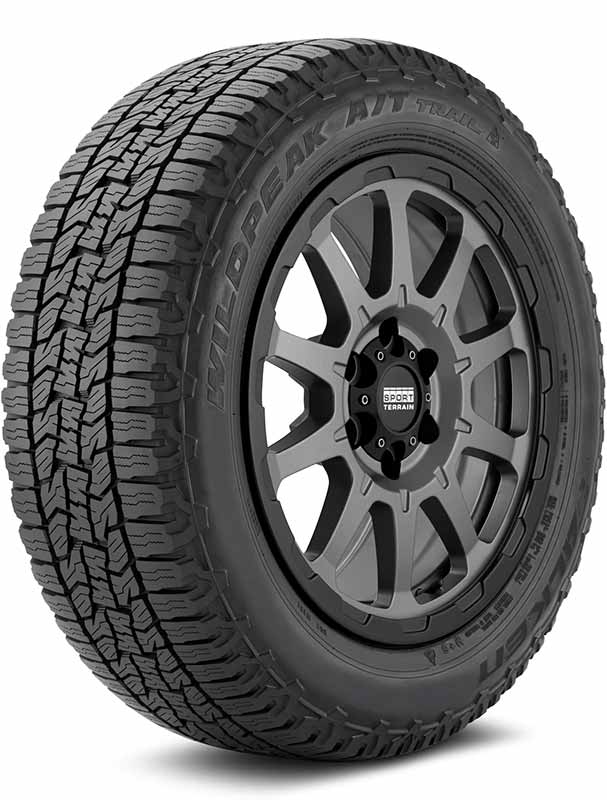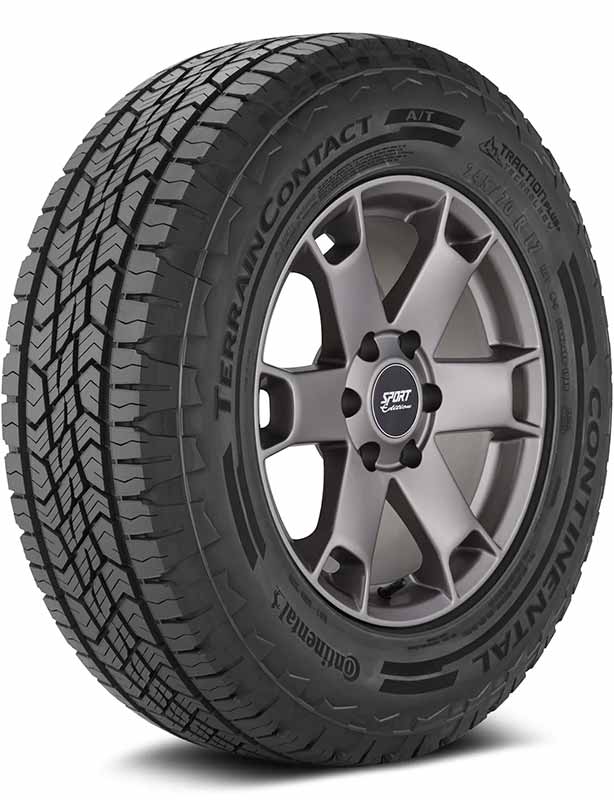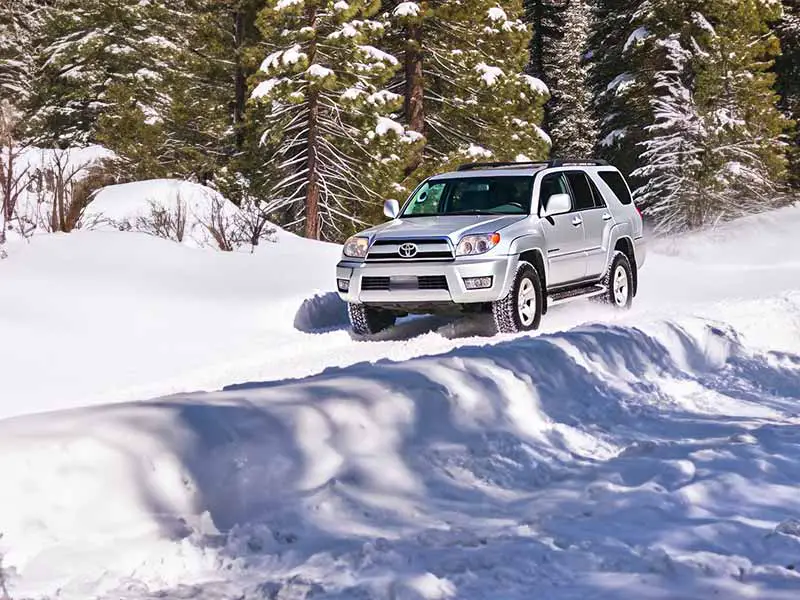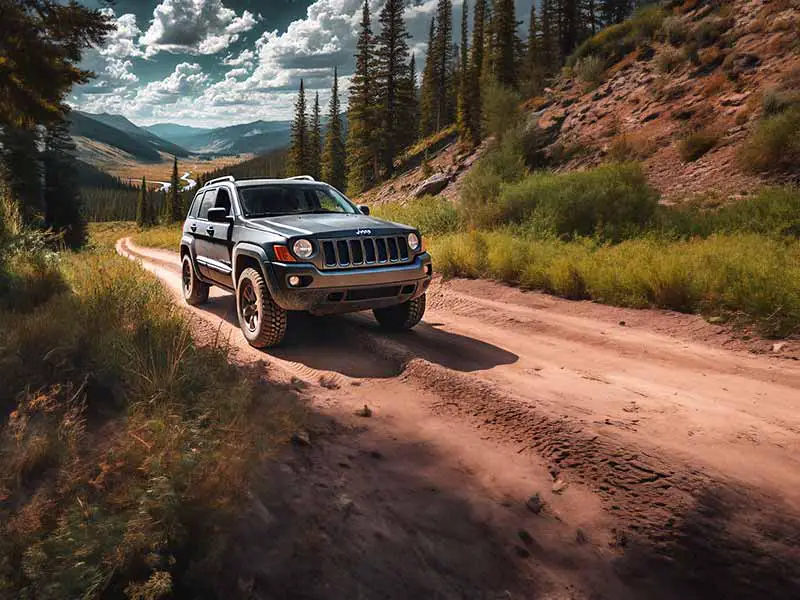An all-season tire is the one type of tire designed to rule them all. It’s able to be used on most cars and light trucks all year and deal with most weather conditions for most people.
It works well in wet or dry conditions and can even handle some light snow. They last a long time, are fairly quiet, and can provide very good handling, traction, and braking performance.
What Are All Season Tires?
All-season tires are designed to be a good tire to use year round for milder climates but are not ideal for more extreme harsh winter conditions.
They perform well in light snow and temperatures above 45º F (~7º C). They also handle hot and wet conditions very well, making them an excellent year round choice for many.
All-season tires make sense for most drivers, but are they the best choice for you? Let’s take a closer look.

MICHELIN CrossClimate2 All-Season
All-Season Tires Pros & Cons
The main benefit of an all-season tire is not needing to swap them out for winter or snow tires if you deal with cold weather conditions that rarely drop below 45º F and only get light snow occasionally.
Cold temperatures below 45º F will be too cold for the rubber compounds used to make the tire and them will become less flexible and much less able to properly grip the road.
Mild winter conditions are no issue for all-season tires but more extreme conditions, such as deep snow, icy roads, and extreme cold temperatures can be dangerous.
All-Season Vs Summer Tires
A summer tire has better traction on dry or wet roads due to softer rubber compounds and more specialized tread design that doesn’t need to account for more varied weather conditions.
All-season tires will have longer tread life due to the more durable rubber and deeper tread depth.
Summer tires will need to be swapped out for a tire more capable of handling winter weather if you live in a climate that has winter driving conditions. If you live in a milder climate you may be able to live with a summer tire year round.

All-Season Vs Winter Tires
Freezing temperatures cause an all-season tire to lose grip on winter roads. The rubber used in these tires will become more stiff and rigid which reduces its ability to deal with winter weather.
Winter tires use rubber compounds specifically designed to stay soft and compliant in the icy conditions and extreme cold of the winter months.
They also have a tread design with more biting edges to help provide improved traction in packed snow.
Winter tires don’t perform well at temperatures above 45º F though. The rubber becomes too soft and the tread blocks flex too much to provide sufficient traction in warm weather.
The softer compound will also wear away much more quickly and ruin winter tires quickly if not swapped out for a more appropriate tire in spring.
All-Season Vs All-Weather Tires
All-weather tires are essentially a type of all-season tire that is designed to be more optimized for harsh weather than a traditional all-season tire.
All-season tires are designed to provide traction and good performance in summer and winter. but they are more optimized to work well in moderate climates. An all-weather tire can do the same job but will not perform as well in summer while it will be better able to handle winter conditions than a normal all-season tire.
All-weather tires can also deal better with heavy rain conditions. They will however likely give up some ride comfort, traction, and stopping distance to softer compound all-season tires.
If you deal with a lot of heavy rain or more severe cold weather that your traditional all-season tire struggles with, an all-weather tire could be a reasonable compromise without the need to to switch to summer tires for heavy rain or a winter tire for more cold temperatures and heavy snow.

All Season Vs Mud And Snow Tires (M+S)
Mud and snow tires are a type of all-season tire that is optimized with wider grooves between the tread blocks to provide traction in mud, slush, and snow. The tread pattern will lose grip more easily in drive conditions but improve traction for more severe wet and snow slush conditions.
Mud and snow tires are identified with an M+S molded into the sidewall. This shouldn’t be confused with the mountain and snowflake symbol used to indicate winter tires.
Mud and snow tires can provide better grip for some snow and winter conditions but the compound used will become stiff and lose grip in more extreme cold weather. Winter tires are still better suited for serious snow and winter weather.
All-Season Vs All-Terrain Tires
All-season tires are quite different from all-terrain tires. Essentially, an all-season tire is a jack-of-all-trades road tire and all-terrain tires are off-road optimized tires that can be used on-road on occasion.
All-terrain tires are a poor choice for regular use on-road. They will wear out more quickly and not provide the best handling performance or stopping abilities due to the large tread blocks that will flex under heavy acceleration, stopping, and cornering.
How Long Do All-Season Tires Last?
Generally speaking, All-Season tires last quite a long time. Summer and winter tires tend to not last as long due to the compounds used in the tires. All-season radial tires are the most common type of tire and tend to have very good wear characteristics.
Consumer Reports tested the tread life of many different types of tires and found that the better all-season tires can last 55,000 to 85,000 miles.

Are All-Season Tires Worth It?
All-season tires are the most popular type of tire on the market today and for good reason. They are capable of performing very well under most conditions for most drivers.
They are very durable and quiet and have very good performance all around. They are not specialized to deal with any one type of weather or road condition, but handle most situations that most drivers encounter on a daily basis with little trouble.
Unless you have a specific need for winter or snow tires, summer tires, or some other specialized type of tire, an all-season tire is the best bang for your buck.
All-Season Tire Temperature Range
All-season tires work well in temperatures down to 45º F. As you get closer to freezing temperatures, the rubber compound will become more stiff and less able to properly grip the road surface.
If you deal with freezing temperatures often, winter tires or possibly all-weather tires would be a better choice.
Are All-Season Tires Good In Rain?
All-season tires a quite good at dealing with rainy conditions, but summer tires are much better able to deal with more extreme heavy rain. Summer tires have larger grooves designed to better route water away from the contact patch and help avoid hydroplaning.
If you deal with extreme rain often in your area, summer tires may be a more appropriate choice. This may mean you need to swap to winter tires depending on your local climate.
Resources
Below are some links you may find helpful when learning about tires
- Summer tires vs all season tires – Bridgestone
- What are all-season tires and are they right for you? – Forbes
Final Thoughts
All-season tires are the most popular type of tire sold in the United States today. It’s a versatile tire that’s capable of handling the majority of weather conditions for the majority of drivers during all seasons.
Some drivers will need to use more specialized tires for severe winter weather or heavier off-road needs, but an all-season tire is likely the best choice for you.
